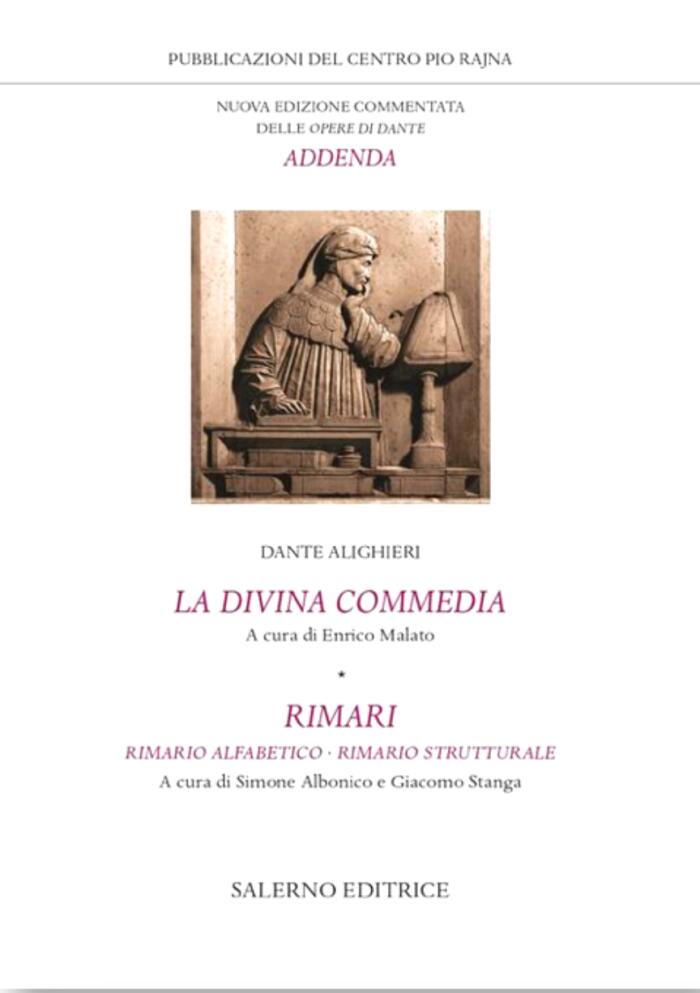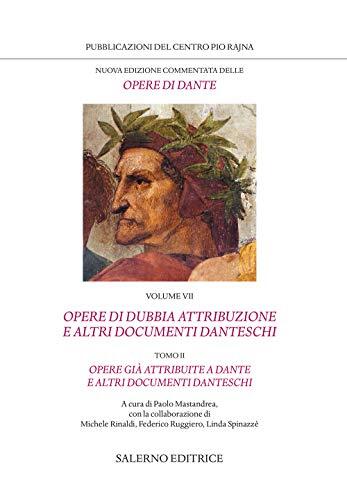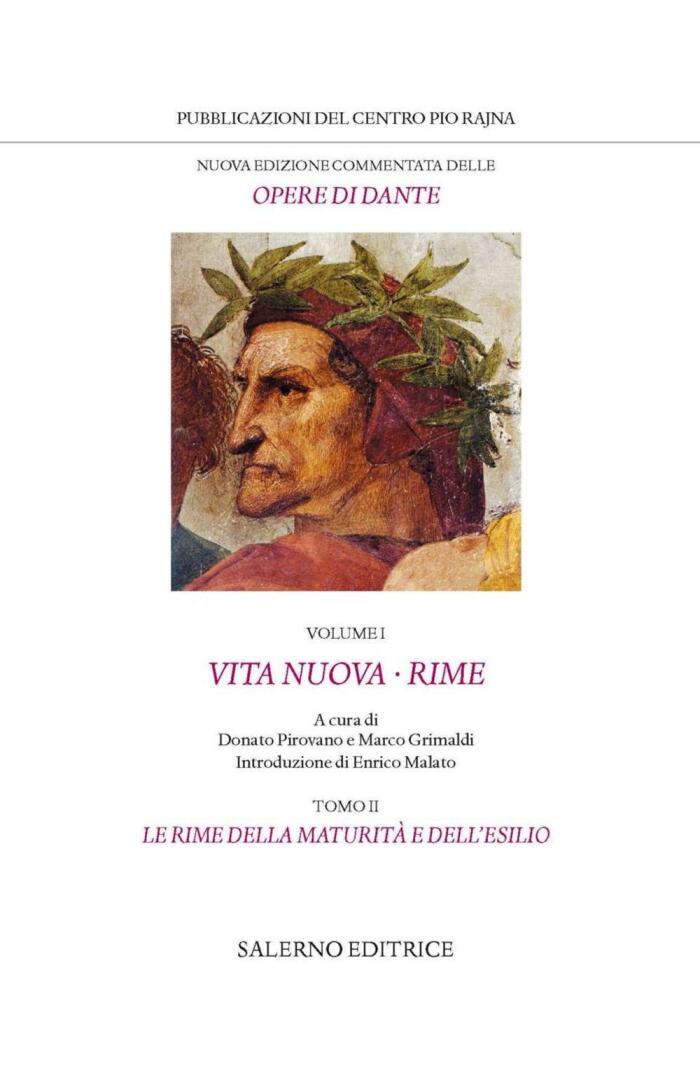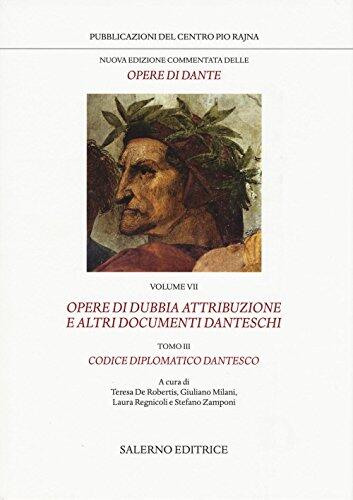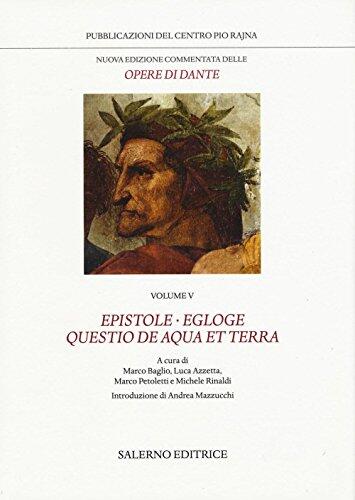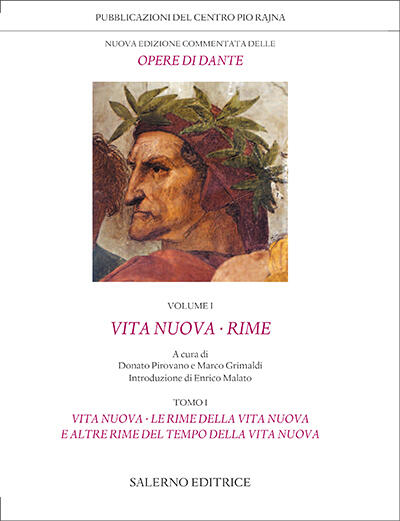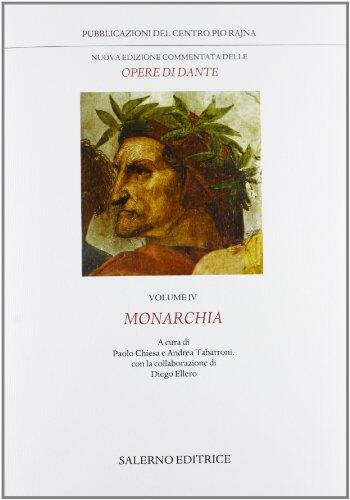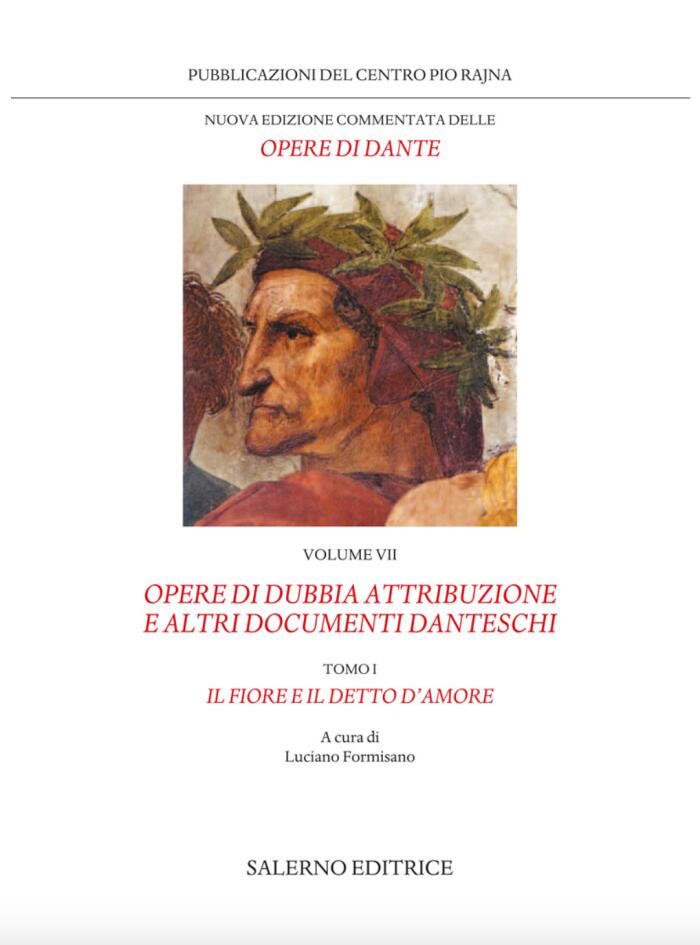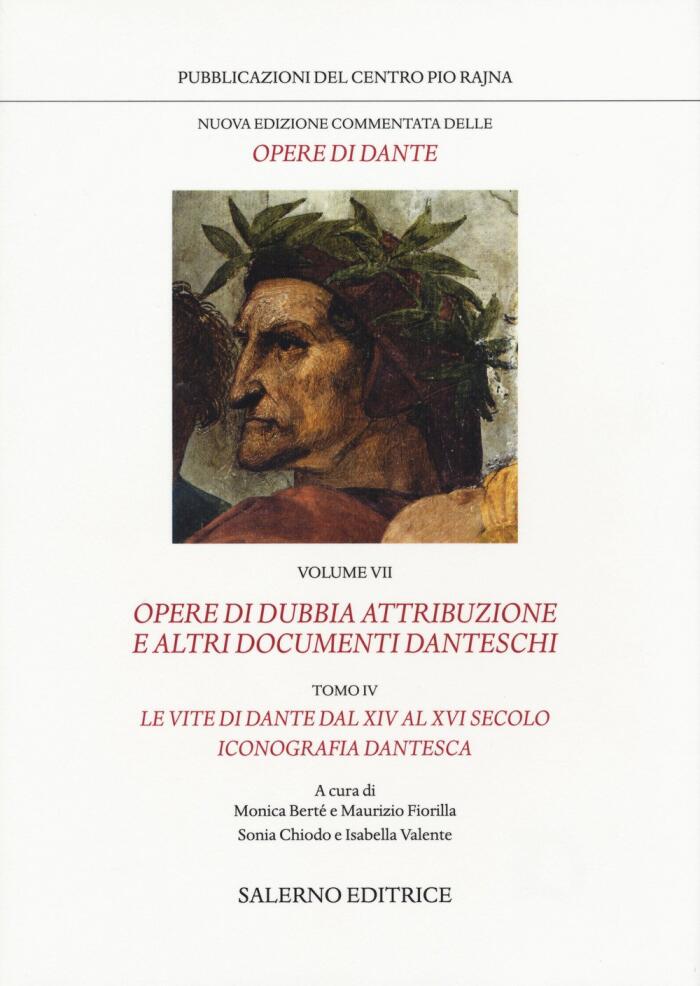
Opere di dubbia attribuzione e altri documenti danteschi. IV. Le Vite di Dante dal XIV al XVI secolo. Iconografia dantesca
아직 평점이 없습니다
형식
하드커버
페이지
488
언어
이탈리아어
출판됨
Nov 16, 2017
출판사
Salerno Editrice
ISBN-10
8869732150
ISBN-13
9788869732157
설명
In this comprehensive study, the authors delve into the complex tapestry of Dante Alighieri’s legacy, focusing particularly on uncertain attributions and the various biographical accounts that emerged between the 14th and 16th centuries. Through meticulous research, they reveal how these narratives not only shaped Dante's image but also reflect the evolving cultural and historical contexts of the time.
The text offers an enriching exploration of the iconography surrounding Dante, shedding light on how his persona was visually represented and perceived across different eras. Each chapter builds a vivid picture of how artists and writers interpreted Dante’s life and works, contributing to a collective understanding of his influence.
Readers are encouraged to consider the interplay between historical documentation and artistry, recognizing how this duality has sculpted the figure of Dante into a multifaceted symbol of literature. The authors’ insights invite a fresh appreciation for Dante’s enduring impact through the centuries.
By weaving together scholarly analysis with a narrative of artistic expression, this work stands as a vital resource for anyone interested in the evolution of literary iconography and the legacy of one of Italy’s most revered figures.
The text offers an enriching exploration of the iconography surrounding Dante, shedding light on how his persona was visually represented and perceived across different eras. Each chapter builds a vivid picture of how artists and writers interpreted Dante’s life and works, contributing to a collective understanding of his influence.
Readers are encouraged to consider the interplay between historical documentation and artistry, recognizing how this duality has sculpted the figure of Dante into a multifaceted symbol of literature. The authors’ insights invite a fresh appreciation for Dante’s enduring impact through the centuries.
By weaving together scholarly analysis with a narrative of artistic expression, this work stands as a vital resource for anyone interested in the evolution of literary iconography and the legacy of one of Italy’s most revered figures.
